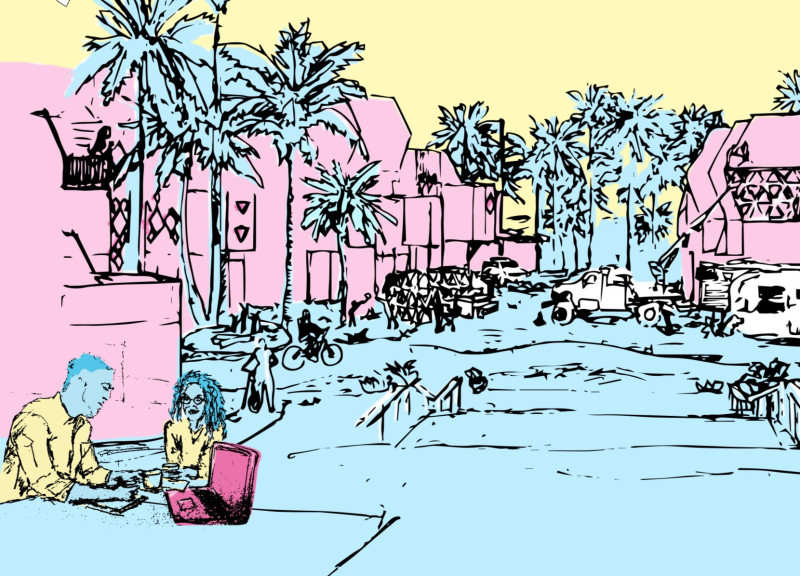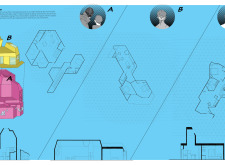5 key facts about this project
The project focuses on improving the living conditions within Two Ferns Mobile Home Park. It aims to maintain the community's history while addressing the challenges residents face due to external economic influences. By enhancing housing density through modular design, the initiative promotes community cohesion and individual well-being.
Modular Design Approach
This development emphasizes a modular design that can adapt to the diverse needs of the residents. It allows for an increase in housing density without displacing current community members. The modular units are envisioned as flexible living spaces, responding to the changing demographics. This approach offers a sustainable solution to ongoing housing shortages in the area.
Cooperative Housing Governance
At the core of the design is the creation of a Resident Owned Corporation (ROC). This organization engages residents in managing their living environment. The cooperative model fosters a sense of ownership and ensures that financial decisions align with the community's goals. By encouraging collective decision-making, the ROC creates an empowered space for residents to share responsibilities.
Preserving Community Identity
The project also addresses issues related to aging legacy units by proposing phased replacements with new modular homes. This plan helps reduce health risks linked to outdated structures while raising the overall living standards. Thoughtful design elements reflect the community’s identity, ensuring that the development aligns with the long-standing relationships among residents.
The design includes features that enhance quality of life, with a focus on communal spaces that encourage interaction and connection. Carefully planned private and shared areas work together to balance individual needs with community engagement. This approach is integral to fostering a strong sense of belonging among the residents.






















































